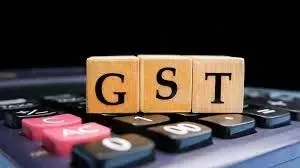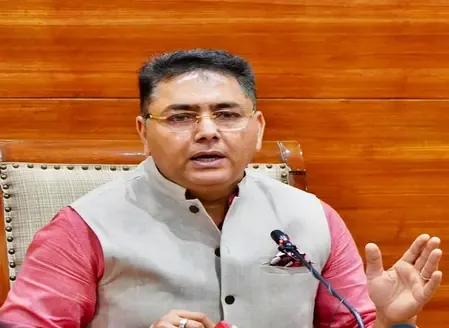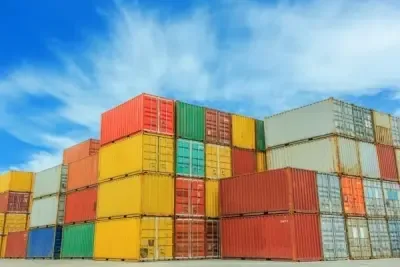How Will GST 2.0 Boost Mass Consumption and Formalisation?

Synopsis
Key Takeaways
- GST 2.0 aims to enhance mass consumption.
- There will be a reduction in GST rates for essential goods.
- Premium consumers will seek unique product offerings.
- Organised sectors are likely to see accelerated growth.
- Strong execution is vital for companies to thrive.
New Delhi, Sep 9 (NationPress) The introduction of GST 2.0 is expected to significantly boost consumption, as the trend towards formalisation continues to grow. Meanwhile, premium consumers are likely to seek out differentiated offerings, as highlighted in a recent report.
The analysis by Emkay Global Financial Services indicates that strengthening macroeconomic factors are sustaining elevated valuations in the sector, although growth support is still anticipated.
"The pre-announcement rally leading up to GST 2.0 has proven to be beneficial. As we incorporate the benefits and adjust target prices for select stocks, our investment recommendations remain strong," the report elaborated.
The proposed GST rates suggest a weighted GST of 6 percent for food and beverages and 12 percent for home and personal care products.
With GST 2.0, there has been a broad rationalisation of rates across food and essential personal care products.
The GST Council has primarily retained home care products under the 18 percent category, while daily-use personal care items have seen rate reductions, with discretionary items still remaining at 18 percent.
"Our research indicates that the organised food and beverage market, which has a total addressable market of Rs 7 trillion (with 90 percent penetration; 30 percent organised), is projected to see a reduction in the weighted GST rate from 10 percent to 6 percent," stated the report.
In a similar vein, the organised home and personal care market, valued at Rs 2 trillion (with 65 percent penetration; 67 percent organised), may experience a reduction of 5 percentage points to 12 percent.
"Within the FMCG sector, the top five categories that will benefit from the rate reduction include soaps, oral care, hair care, biscuits, and salty snacks. We anticipate that the reduction in personal care products will address concerns of slowdown, while the benefits for biscuits and salty snacks are expected to promote formalisation," the report noted.
Over the past year, there has been a significant enhancement in regulatory support for the sector, paving the way for accelerated growth. Companies that excel in execution and have portfolios aligned with consumer preferences are expected to gain the most.
"The companies we cover are poised to benefit from the accelerated formalisation, but strong execution will be necessary to compete with emerging brands. The pre-announcement rally for GST 2.0 has indeed been rewarding," the report emphasized.










